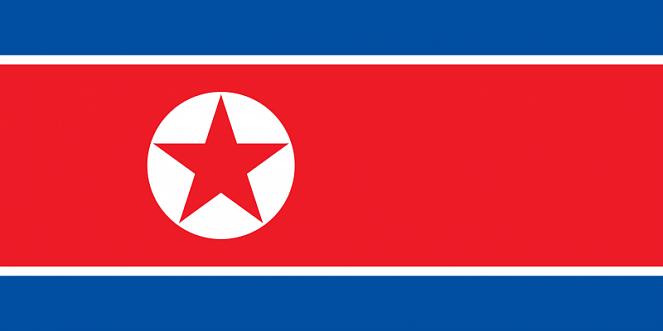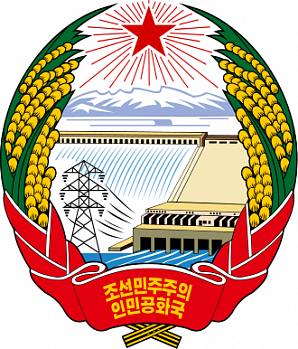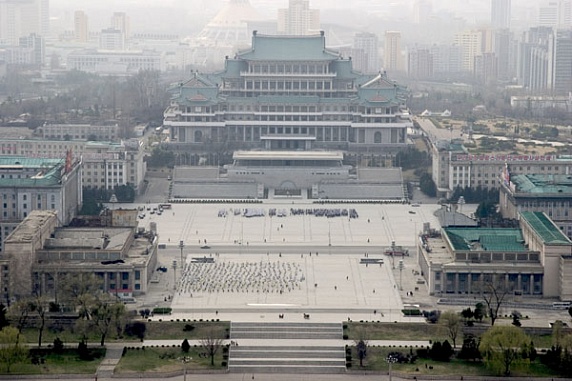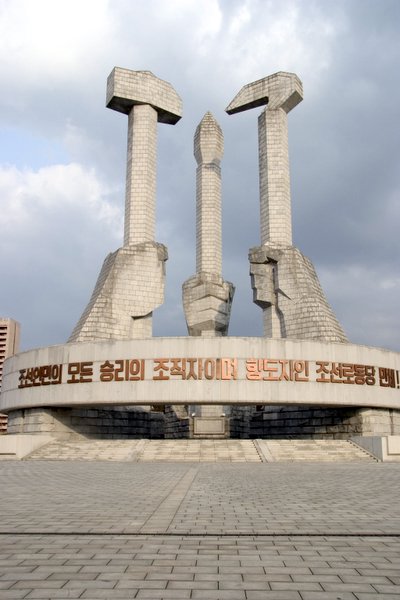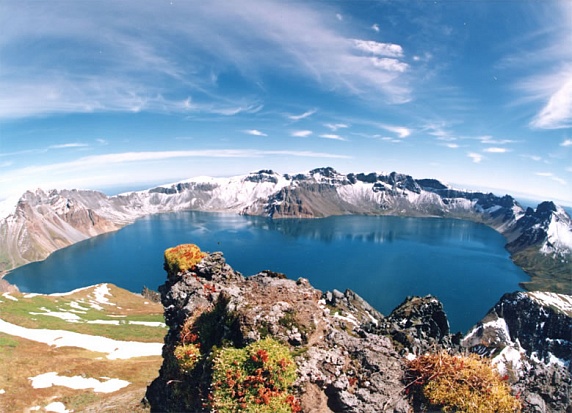 Democratic People's Republic of Korea
Democratic People's Republic of Korea
Comment by the Information and Press Department on the Official Visit of DPRK Foreign Affairs Minister Ri Su Yong to Russia
The Foreign Affairs Minister of the Democratic People’s Republic of Korea Ri Su Yong will pay an official visit to the Russian Federation on April 9-11. He is scheduled to have talks with the Russian Foreign Minister Sergey Lavrov on April 10.
During their meeting in Moscow the two ministers are planning to discuss bilateral cooperation, including the development of the political dialogue, and trade and economic cooperation.
Among the issues to be discussed is foreign policy interaction between Russia and the DPRK, which is an important factor in maintaining peace and stability in Northeast Asia. An exchange of views will take place on current international issues, including the situation in the Middle East, progress in implementing the Joint Comprehensive Plan of Action on the Iran Nuclear Programme as well as prospects for creating a new security architecture in the APR.
An important part of the agenda of the forthcoming talks will be an exchange of views on the situation on the Korean Peninsula and the search for ways to settle it, including in the context of emerging positive trends in the development of the situation in the sub-region. The current nuclear and other issues on the Korean Peninsula are still a serious factor holding back cooperation between Russia and North Korea. Russia supports compliance with the provisions of the relevant UN Security Council resolutions, both those concerning restrictions and those concerning the promotion of a political and diplomatic settlement of the nuclear and other problems on the Korean Peninsula. In this context we support the steps of the North Korean leadership aimed at inter-Korean rapprochement, normalization of relations between the two Korean states and the establishment of direct dialogue with the US, which is part of the road map proposed by Russia and backed by China. The end result of the collective efforts in this area should be a comprehensive settlement of the situation in the sub-region and the creation of a durable peace and security mechanism in Northeast Asia.
The two ministers will also discuss the development of trade and economic cooperation in light of the results of the 8th Meeting of the Intergovernmental Commission for Trade, Economic and Scientific-Technical Cooperation held in Pyongyang on March 21-22, 2018. Measures are to be discussed to enhance interaction in practical areas and the possibility of joint projects, including in a tripartite format, involving our South Korean partners.
One of the items to be discussed during the upcoming talks will be the preparations for marking the 70th anniversary of bilateral diplomatic relations. A schedule of joint events, mutual visits and contacts timed for that date is to be discussed.
Russia and the DPRK have long-standing bonds of friendship and mutually beneficial cooperation. The USSR was the first to recognize the DPRK in October of 1948. The 12th of October 2018 will mark 70 years since the establishment of diplomatic relations between the two countries. Russia invariably seeks to maintain and develop friendly good-neighbourly relations with the Democratic People’s Republic of Korea. It is in the interests of the two countries’ peoples to build up constructive bilateral cooperation in all areas.
Inter-parliamentary contacts play an important role in the development of Russia-North Korea relations. In April and November 2017 a delegation of the State Duma Friendship Group led by Kazbek Taysayev visited Pyongyang. In October 2017 Deputy Chairman of the Supreme People’s Assembly Ahn Dong Chun held talks with the Federation Council Chairperson Valentina Matviyenko.
In 2017 Russia was visited by the DPRK Minister of External Economic Affairs Kim Young-jae who attended the Third Eastern Economic Forum in Vladivostok (September 6-7) and President of the DPRK Central Court Kang Yun Sok (December). The 45th Session of the Organisation for Cooperation of Railways (OSJD) which took place in Sochi was attended by the DPRK Minister of Railways Jang Hyok (June), and the Minister of Sport Kim Il-guk attended the International Conference of Sport Ministers in Kazan (July).
As part of implementing the intergovernmental agreement on preventing dangerous military activities, a delegation from the Russian Defence Ministry led by Deputy Chief of the National Defence Control Centre Viktor Kalganov visited Pyongyang in December 2017.
The Minister for the Development of the Russian Far East, Alexander Galushka, visited Pyongyang to attend the 8th Session of the Intergovernmental Commission for Trade, Economic and Scientific-Technical Cooperation on March 21-22, 2018.
The two countries’ foreign ministries have good ties. In August 2017 the two foreign ministers met on the sidelines of the Asian Regional Forum (ARF) in Manila.
Russia is a traditional trade and economic partner of the DPRK. The international sanctions and illegal unilateral restrictions introduced by some countries have complicated the further development of bilateral economic ties. In 2017 trade between Russia and North Korea totalled $77.9 million, which is slightly more (+1.3%) than in 2016.
Joint operation of the Hasan (Russia) –Rajin (DPRK) section of the railway rebuilt by RasonConTrans (a subsidiary of Russian Railways) and the third pier of Rajin Port is an important bilateral project. The UN Security Council’s resolutions on the DPRK expressly state that their provisions do not apply to the Hasan-Rajin project as far as Russian coal transit via DPRK territory is concerned. Russian Railways continues its efforts to bring into the project Russian and foreign transport and logistics companies to form a cargo transport centre.
One mutually beneficial area of bilateral economic cooperation is the use of DPRK manpower to make up for the labour shortage in some Russian regions, mostly in Siberia and the Far East. During the discussion of UN Security Council Resolution 2397 Russia took a firm stand against the immediate deportation of North Korean labour migrants. DPRK workers whose labour contracts expire on September 11, 2017 can stay on in Russia for a further two years and will leave Russia after completing their contract obligations.
The two sides will discuss areas for the further improvement of the legal framework of bilateral relations in various fields.
Moscow and Pyongyang cooperate within the UN, including on important issues like countering the glorification of Nazism, international information security, and transparency and confidence building in outer space.
Russia regularly renders the DPRK humanitarian assistance, including through international organisations. In 2017 it supplied 3,100 tonnes of wheat flour through the UN World Food Programme.
Education and cultural cooperation is making progress. The Russian Centre set up by the Russky Mir foundation at the Pyongyang Institute of Foreign Languages has been functioning successfully since 2009. As part of the RUSSIA STUDY programme 30 places for DPRK students have been reserved for the 2017/2018 academic year (funded out of the Russian federal budget).
